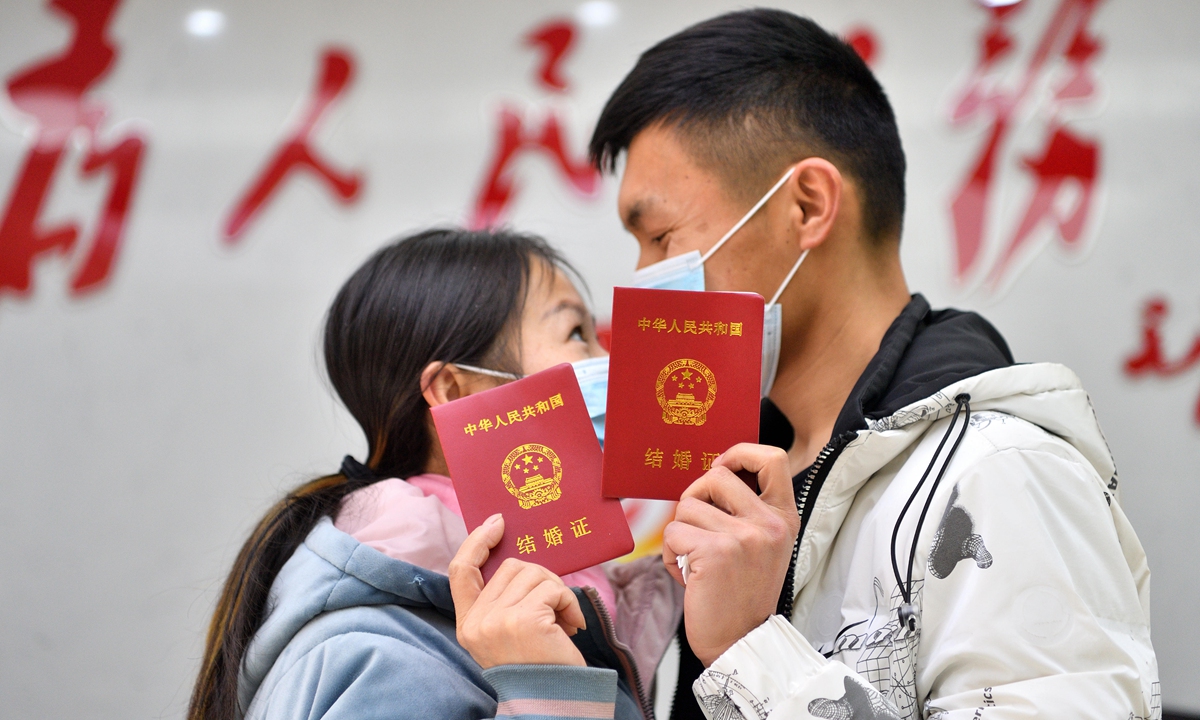Chinese population of first-marrieds halves over the past 7 years, indicating extremely low birth rates

A couple poses for a photo after receiving their marriage certificate at the marriage registration office of a civil affairs bureau in Xiangyang, Central China's Hubei Province on February 22, 2022. Photo: VCG
The number of couples in their first marriages almost halved over the past seven years in China, which indicates extremely low birth rates ahead, new research showed on Monday. Experts have suggested that policies are needed to encourage young couples to have more children, including lower property prices and favorable mortgage terms.
The number of Chinese people in their first marriages, which is closely related to the number of newborns, fell to 12.28 million in 2020 from the peak of 23.85 million in 2013, a 48.5 percent drop, according to the report on Chinese Marriages and Families 2022 released by YuWa Population Research on Monday.
Besides, the number of Chinese marriage registrations fell to 7.63 million in 2021 from 13.47 million in 2013.
Falling marriage rates are seen in both rural areas and big cities, because the costs of marriage and childrearing are rising in both underdeveloped and developed areas, James Liang, economist and chairman of China's leading travel agency Trip.com, said at an online press conference on Monday.
The report also showed that the ages of Chinese couples who tied the knot had risen significantly. In East China's Anhui Province, the average age for first-marriage registration in 2021 was 33.31 years, compared with 26 years in 2008.
The average ages of men and women who got married for the first time in the province in 2021 stood at 31.89 years and 30.73 years respectively.
The delayed age of marriage in Anhui was shocking, since it was even higher than in regional developed countries such as Japan and South Korea, Liang said. Since Anhui is not the most advanced province in China, the ages of first marriages in more advanced regions such as Beijing and Shanghai would be even higher, which means dropping marriage and birth rates.
The number of people of marriage age keeps slipping in China, and the high costs of raising children have also driven up the ages of first-marrieds. Such high costs have suppressed young people's desire to get married.
Experts suggested in the report that couples who have second or third children could get 50-100 percent of their mortgage interest costs refunded. In areas where property prices are particularly high, discounts of up to 50 percent and 30 percent should be offered to families with three or two children, Liang suggested.
Liang said a key point to improve fertility rates is to raise women's social status and improve their career development, since statistics show that birth rates are higher in some Nordic countries, where women enjoy higher social status.

